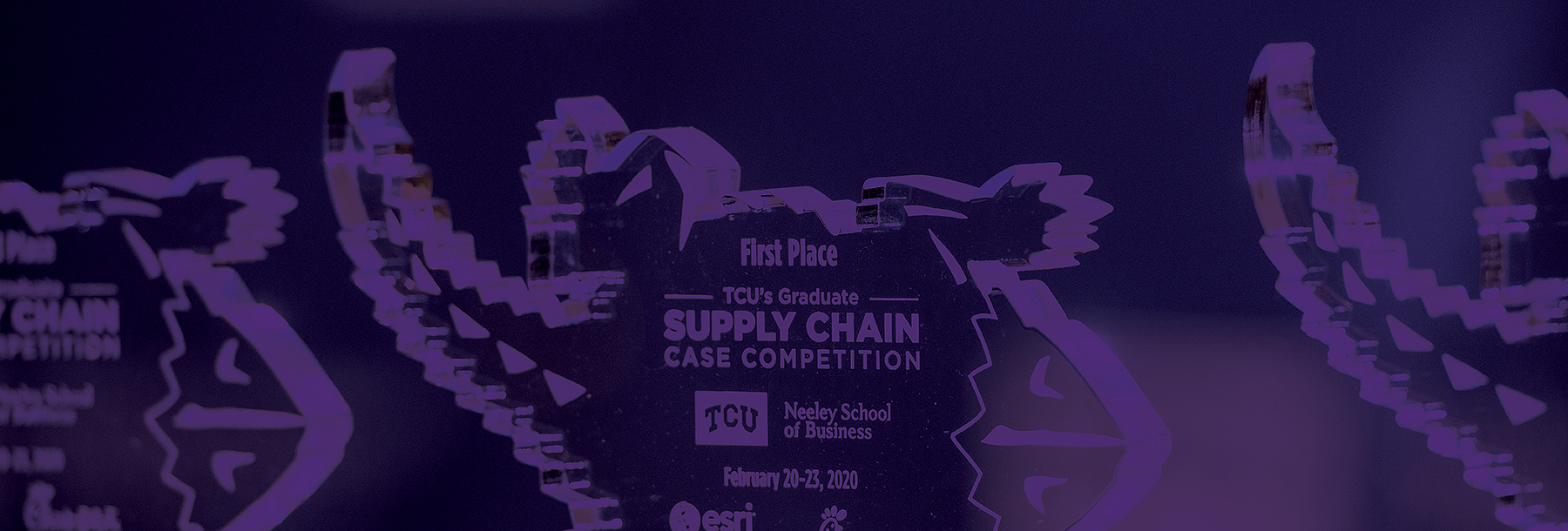Brigham Young University has won the TCU Graduate Supply Chain Case Competition more than any other team. The 2021 winning team shares their secrets for success.
June 08, 2021
By Morgan Swink and Erin Smutz
Each year, the TCU Neeley Center for Supply Chain Innovation hosts a supply chain case competition for graduate business students from top universities across the country. While student teams step up to the challenge and deliver innovation ideas, one university manages to take the lead each year – Brigham Young University.
For the past five years, teams from BYU have consistently blazed their own trail at the annual case competition. They have won three times, including 2021, and are always among the top performing teams. So what is BYU’s secret sauce?
At TCU Neeley, we spoke with Scott Webb, associate professor of global supply chain management at the BYU Marriott School of Business, and 2021 team member Alex Larsen MBA ’21, to find out the university’s best practices for case competitions.
 |
 |
| Scott Webb | Alex Larsen |
How do you select your team members and what are some key factors to consider during the selection process for the case competition?
SW: We select our team members mostly from students in BYU’s Learn to Become Program, which is essentially a consulting class that gives students real-world experience working with a client. I ask students in the program to provide a rank order list of candidates for the case competition team. From that list, I select a team captain and then ask them to select the other team members. Ideally, the team members have prior experience working together and most have prior case competition experience.
AL: Our final team typically includes members with skill sets that complement one another (e.g., analysis, technical, financial, industry knowledge and presentation skills). We also meet in advance to assign roles and make a plan for utilizing our skills.
How do you engage and motivate team members during the case competition?
SW: Early on, I select the team captain to minimize “storming” and keep the students focused on teamwork. I also encourage students to avoid jumping right into problem solving. Instead, I recommend they spend the first four hours of the competition digging into the real issue and what strategies can address the problem.
AL: From the beginning, Professor Webb provides mentorship to us as a team. He communicates the importance of the overall competition experience and he asks for our full dedication on the case. And we gladly give it.
If you were to offer advice to future teams, what are your top tips for success?
SW: Prior experience is crucial. Our graduate business students get a lot of presentation experience during classes and on consulting projects. It’s also a great idea to check in with the previous year’s team members – see what worked and what didn’t. Finally, I recommend getting started immediately, as soon as the competition starts. This way you can run as many scenarios as you can to see the best solutions emerge.
AL: Planning is key. Develop a plan for how the team will use the 24 hours allotted for the case competition. Then set milestones for every six-hour mark to see where you stand. Also, plan for the fact that you aren’t going to get any sleep – drink lots of caffeine.
Why do you participate in the TCU Graduate Supply Chain Case Competition each year?
SW: The TCU competition provides an excellent opportunity to add to students’ experiential learning portfolio, and it creates great visibility for BYU, or any business school for that matter.
AL: While the competition is intense, it’s also very rewarding. You get to meet a wide range of industry executives and thought leaders.
Learn more about the TCU Graduate Supply Chain Case Competition.

